Starting next week milking cows will hit peak milk yield, some 10 to 12 weeks after mean calving date. Over 2,000 lorries of milk per day need to be collected from dairy farms and delivered to milk processing plants right across the country.
Figure 1 shows an estimate per processor of the daily journeys required for standard 25,000-litre milk tankers. This estimate is based on previous milk supply volumes for late April and the month of May. At peak, there is very little spare milk processing capacity in Ireland so there is little room for manoeuvre if a breakdown in a plant occurs.
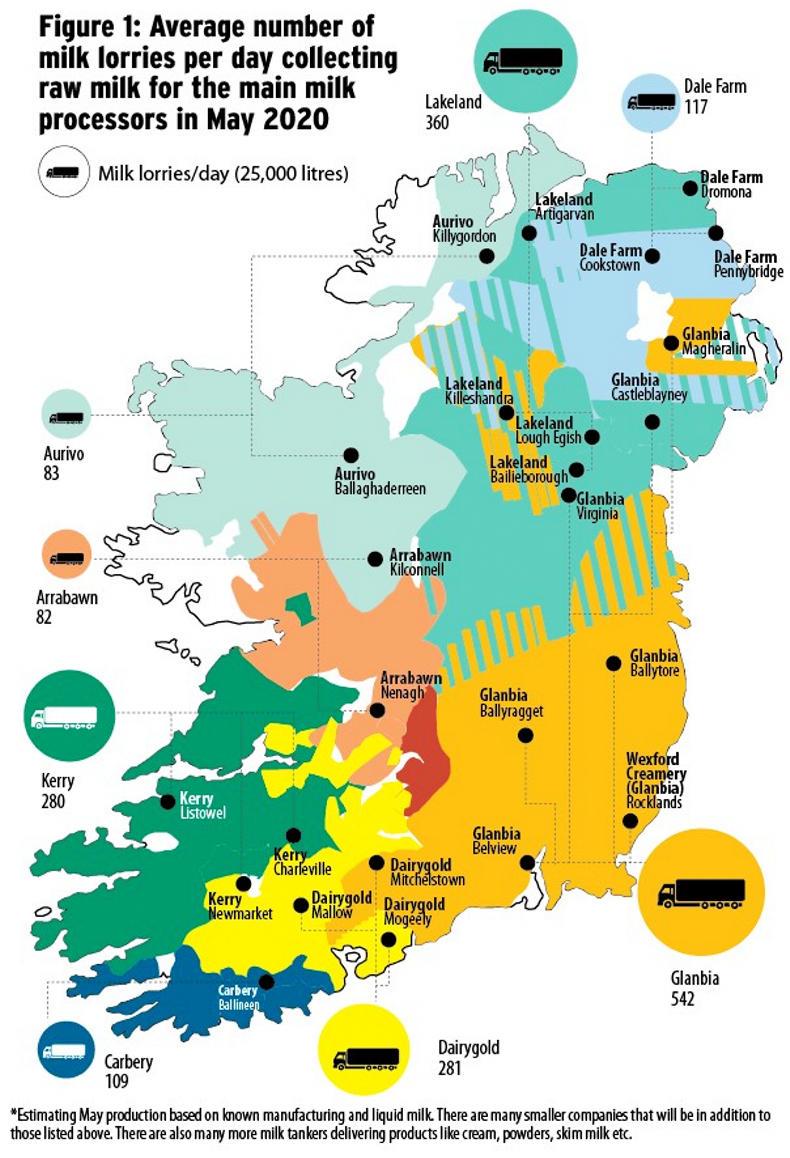
A number of weeks ago, Dairy Industry Ireland (the processor umbrella group) highlighted the additional risk for 2020 if COVID-19 was to reduce the milk processing workforce. This could happen either through sickness or if others were forced into work absence following contact with a COVID patient. That risk is still real, but there is a huge degree of facility sharing between processors to help manage the peak milk flow.
Figure 1 shows the basic journey for raw milk and ignores the huge volume of secondary processing of dairy products to facilities for further processing.
The spring flush of milk peaks next week for some co-ops in the Republic of Ireland and will peak in early May for other co-ops further up the country. The exact time and duration of peak milk will depend on weather and the grass flush allied to calving date in the locality. Farmers and the industry have been investing in storage and processing facilities for the last 10 years to manage this volume of milk.
Ongoing large developments include the Dairygold facility in Mogeely, the Glanbia facility in Portlaoise, and Carbery in west Cork.
There have also been a number of plant upgrades over the last year – Lakeland Dairies in Artigarvan, Glanbia in Wexford, Tipperary Co-op in Tipperary Town, Aurivo in Ballaghaderreen, Arrabawn in Nenagh, and North Cork Co-op in Kanturk.
Read more
Contingency plans at Glanbia to minimise impact on peak milk collection
Farmers will be told if milk capacity is constrained – ICOS
Warnings on peak processing risk
Starting next week milking cows will hit peak milk yield, some 10 to 12 weeks after mean calving date. Over 2,000 lorries of milk per day need to be collected from dairy farms and delivered to milk processing plants right across the country.
Figure 1 shows an estimate per processor of the daily journeys required for standard 25,000-litre milk tankers. This estimate is based on previous milk supply volumes for late April and the month of May. At peak, there is very little spare milk processing capacity in Ireland so there is little room for manoeuvre if a breakdown in a plant occurs.

A number of weeks ago, Dairy Industry Ireland (the processor umbrella group) highlighted the additional risk for 2020 if COVID-19 was to reduce the milk processing workforce. This could happen either through sickness or if others were forced into work absence following contact with a COVID patient. That risk is still real, but there is a huge degree of facility sharing between processors to help manage the peak milk flow.
Figure 1 shows the basic journey for raw milk and ignores the huge volume of secondary processing of dairy products to facilities for further processing.
The spring flush of milk peaks next week for some co-ops in the Republic of Ireland and will peak in early May for other co-ops further up the country. The exact time and duration of peak milk will depend on weather and the grass flush allied to calving date in the locality. Farmers and the industry have been investing in storage and processing facilities for the last 10 years to manage this volume of milk.
Ongoing large developments include the Dairygold facility in Mogeely, the Glanbia facility in Portlaoise, and Carbery in west Cork.
There have also been a number of plant upgrades over the last year – Lakeland Dairies in Artigarvan, Glanbia in Wexford, Tipperary Co-op in Tipperary Town, Aurivo in Ballaghaderreen, Arrabawn in Nenagh, and North Cork Co-op in Kanturk.
Read more
Contingency plans at Glanbia to minimise impact on peak milk collection
Farmers will be told if milk capacity is constrained – ICOS
Warnings on peak processing risk





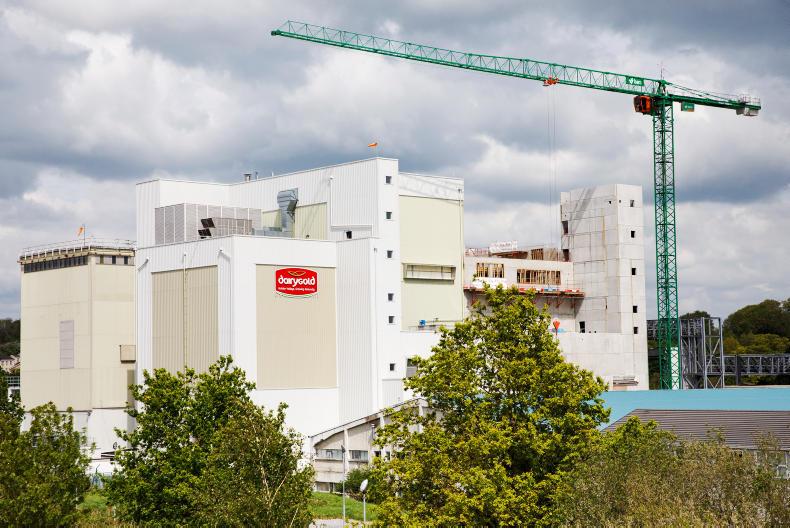
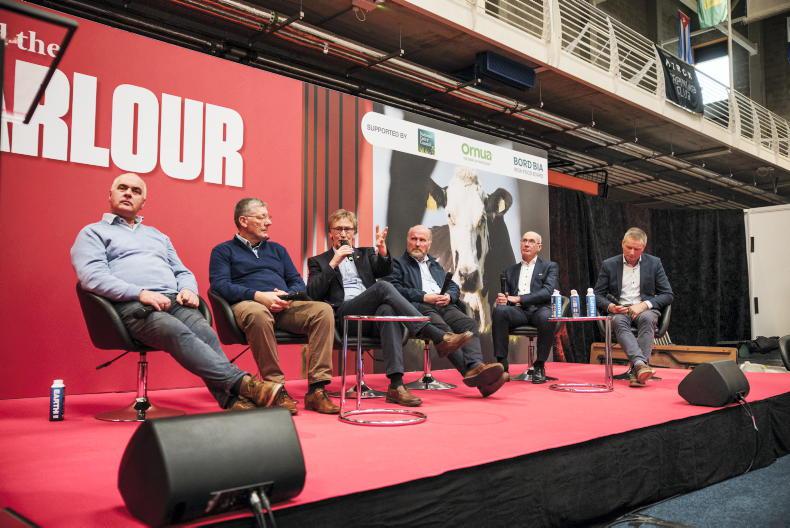


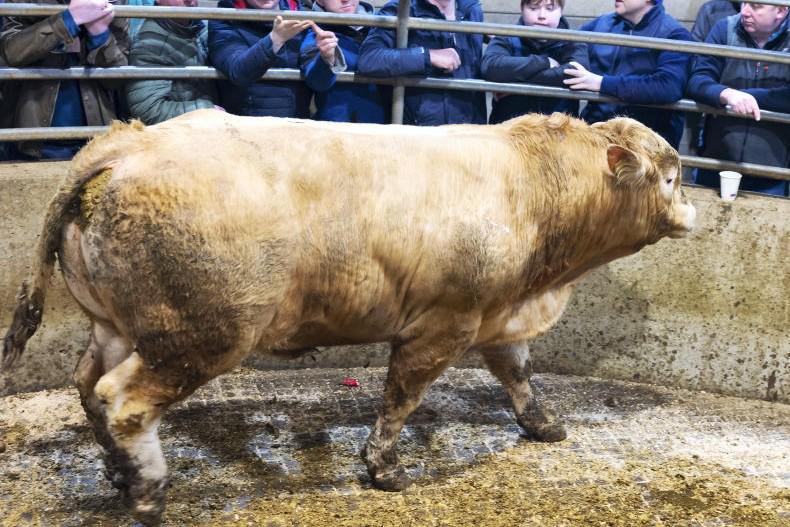
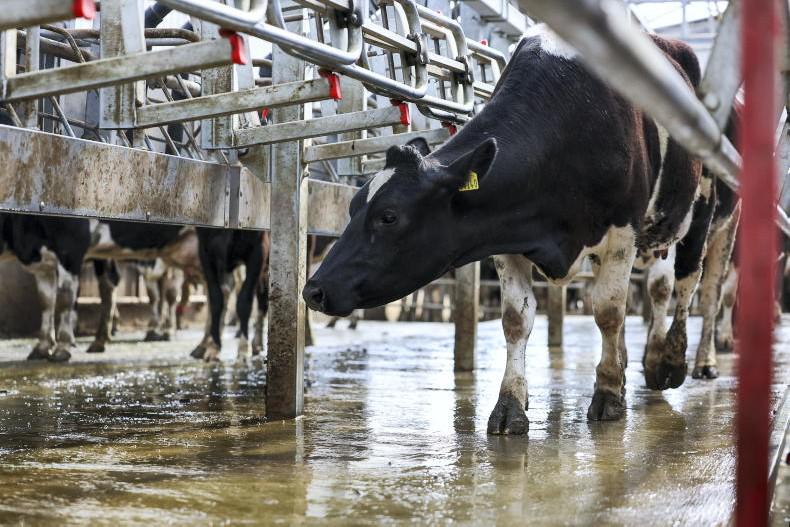
SHARING OPTIONS